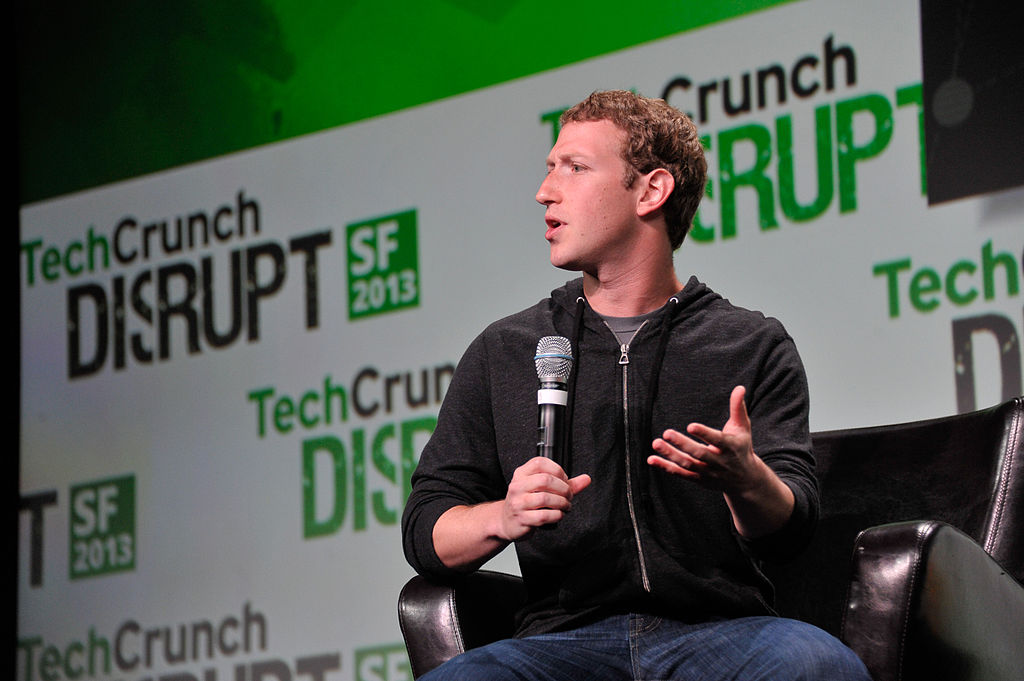
Tech giants sell predictions about us. Incredibly accurate predictions.
by Michele Kipiel
Collage by the IotL Magazine
[dropcap]T[/dropcap]o most people born after the second world war the word “surveillance” conjures images of dull, methodical, expressionless secret police agents spying on unaware citizens somewhere in the Eastern Bloc. To many people surveillance is a thing the Eastern Baddies engaged in, not something us, the Lawful Westerners, would ever do.
The recent actions of brave whistleblowers Chelsea Manning and Edward Snowden vaporized this comfortable image of the world almost overnight: Western agencies like the National Security Agency (NSA) suddenly found themselves on the list of evil organizations spying on people in the name of the State, next to big names like the KGB and the Stasi. These revelations changed the way we imagine the West forever, but they also have deep implications on a much smaller scale: our day to day lives.
Big Brother, the American Way: How It Began
Like its Eastern predecessors, the NSA is a government agency tasked with gathering intelligence on behalf of the military and political establishments. Unlike both, though, it developed a distinctively American way to achieve its goals: it contracted a big chunk of its work to private companies. Beginning with the Massive Digital Data Systems (MDDS) project in the mid-90s, the NSA (and the ever-present CIA) never lost an occasion to throw money at promising digital startups.
This might not look particularly striking at first glance, as anyone with an even cursory knowledge of the Cold War knows how keenly the US government funds projects that might give it an edge over its adversaries: from psychoactive drugs to laser-shooting satellites, the US funded some of the weirdest ideas ever conceived. What makes MDDS and all subsequent Silicon Valley investments radically different though, is the fact that these projects, unlike earlier US government forays in the digital realm like ARPANET, were developed in the absence of a formal external enemy (the USSR officially dissolved on December 26, 1991), they were meant to be profitable and they were designed to target both US and non-US citizens alike.
Massive Digital Data Systems and all subsequent Silicon Valley projects, unlike earlier US government forays in the digital realm like ARPANET, were developed in the absence of a formal external enemy.
The US intelligence community set the tone early on: a 1993 paper clearly stated that “the IC is taking a proactive role in stimulating research in the efficient management of massive databases and ensuring that IC requirements can be incorporated or adapted into commercial products”. This novel approach of contracting intelligence services to public-facing companies is what set the stage for the business practices and methods that underpin what we nowadays refer to as Surveillance Capitalism.
By 1995 the MDDS project was well under way and some of the most brilliant data scientists from all major US universities were on board. Notably, one of the earliest MDDS grants was assigned to two young graduates from Stanford who went by the names of Larry Page and Sergey Brin, who a few years later would become the co-founders of a little Silicon Valley startup called Google.
The US intelligence community wanted a way to collect and structure vast quantities of data to make the work of identifying potential terrorists easy and manageable, and the Page/Brin duo delivered in spades: their groundbreaking work on page ranking algorithms built on user search analysis finally gave the US intelligence community a tool foreign agencies could only dream of. Officially funded by the NSF (National Science Foundation), Page and Brin, still Stanford students at that point, eagerly developed the technology that would turn them into two of the most successful internet entrepreneurs in Silicon Valley’s history.
Don’t Be Evil (to Your Investors)
When Google was incorporated, in 1998, its search prowess took the internet by storm. No other search engine could match Page Rank in speed or accuracy. Life was good in Mountain View: Google Search was gaining more traction with each passing day, cash was flowing constantly from the almost impossibly deep pockets of investors right into Googles’s coffers and competition was nowhere to be found.
Soon, targeted advertising became part of the company’s offering too, though ironically enough neither Page nor Brin gave much credit to the idea, citing advertising’s natural tendency to favor the advertiser and not the consumer. But it was good business, and the AdWords division was born nonetheless, staffed with a staggering seven employees. Then, everything changed.

In late 2000, just two years after Google’s incorporation, the dot-com bubble burst, marking the early and abrupt end of what many regarded as a new era of capitalism, the brief craze that went by the name of New Economy. Pressed by investors, who saw their hopes for a big sale irremediably compromised, the two co-founders were desperately in need of way to monetize their creature quickly or see it disappear, as they became painfully aware of the new rule of Silicon Valley: “simply displaying the ability to make money will not be enough to remain a major player in the years ahead” as the Wall Street Journal put it.
Salvation came from another young Stanford graduate, Amit Patel, one of the first 21 employees at Google, who is widely credited with finding a way to monetize Google Search without directly charging users nor companies.
Shoshana Zuboff describes this fateful discovery as a pivotal moment in Google’s history: “[Patel’s] work with (…) data logs persuaded him that detailed stories about each user—thoughts, feelings, interests—could be constructed from the wake of unstructured signals that trailed every online action”.
Patel understood that all the meta-data collected as a byproduct of the search business (a testament to Google’s origins as a data-gathering intelligence experiment), could be used to turn Google into an ever-learning, ever-improving, ever-vigilant advertising powerhouse. And thus the core tenet of surveillance capitalism was born: the idea that each and every human interaction can be quantified, stored, analyzed and transformed into “gold dust” as Kenneth Cukier called it.
Patel understood that all the meta-data collected as a byproduct of the search business could be used to turn Google into an ever-learning, ever-improving, ever-vigilant advertising powerhouse.
If up until the dot-com crash the AdWords team at Google was comprised of just seven people, most of whom despised advertising as much as young Page and Brin did, as early as in 2002 Hal Varian, then chief economist at Google, wrote that “every action a user performs is considered a signal to be analyzed and fed back into the system”, thus signaling the company-wide adoption of Patel’s idea and the re-birth of Google as the surveillance company it is today.
Know Your Foe as It Knows You
But what exactly is surveillance capitalism? It’s many things at once: a new business logic that strives to justify unregulated data extraction masquerading as a force for good in the name of “the betterment of everyday life”; a new market form that transforms personal data into “behavioral surplus” to be crunched by obscure algorithms and sold to the highest bidder; a radical evolution of the “market imperative” introduced by neoliberal economists Hayek and Friedman as a cure to the ailing Keynesian economics in the late 1970s.
Most importantly, surveillance capitalism is a system designed to infiltrate our lives, much like a parasite, and prey on all the non-market interactions that naturally escape the “market imperative” (a run in the park, a chat with a friend, a dinner with a partner etc…) to render them into strings of data that can be analyzed, stored and sold.
So, are surveillance companies actually selling your personal data? The answer is very simple: they aren’t. What they are selling, instead, is approximate representations of the world, developed by crunching billions of data points collected from unaware users, that are precise enough to inform the future actions of interested third parties with a negligible error margin. In other words: they sell predictions about us. Incredibly accurate predictions.
Data giants sell predictions about us. Incredibly accurate predictions.
Studies report that Google and Facebook, the top players in the surveillance capitalism game, are capable of predicting user behaviour with such an unprecedented degree of precision that advertising on their platforms is perceived by users as “uncanny”. And it doesn’t stop here.
The appetite for certainty created by Google can no longer be satisfied by data-modeling alone, and thus new, even more troubling approaches are being developed across the board: “behavioral surplus is used to trigger punishments, such as real-time hikes, financial penalties, curfews, and engine lockdowns, or rewards, such as rate discounts, coupons and gold stars to redeem for future benefits”.
If this sounds like pie-in-the-sky, tinfoil-hat nonsense to you, ask yourselves when was the last time an application nudged you into running more, posting more often or keeping in touch with your friends, and think again.

The true masterpiece of surveillance capitalism is, however, the way it managed to trick a multi-billion crowd into sharing every aspect of their lives, even those that were never meant to be public, with a handful of secretive, sect-like companies (Facebook’s annual convention is called F8, which can be read as either “Fate” or “Faith”, an unsettling choice of words in both cases).
Billions of people worldwide are kept in a state of addiction by means of “free” applications spanning the whole spectrum of our digital lives: from social media to maps, note-taking, voice recording, image sharing, entertainment and health there is literally “an app for that” in every field of human experience. This unfortunate state of addiction is also constantly fueled by notifications of all sorts, meant to keep engagement artificially high and to make users forget that constant interaction with either of the applications provided by the surveillance giants harms them twice: not only these applications weaken user privacy, they also help improve the predictions developed by the surveillance giants, increasing the precision of the targeting and thus allowing them to charge even higher fees.
The net result of all this is that surveillance giants get richer with each passing day, while users become the target of ever more aggressive advertising and increasingly predatory data extraction. In essence, surveillance capitalism is a very elaborate scheme to profit off the unpaid labor of billions of unaware users worldwide, while making them believe they are enjoying free goodies delivered with a smile by benevolent corporations. Or, as one internet poem goes: “Twitter is cyan, Facebook is blue, your friends are the product and so are you”. Think about it the next time you like something on Facebook or ask Google for directions to your friend’s place.
![]()
This article is part of Surveillance Capitalism: Utopia for the Few series. Read the other chapters below.
Chapter 2. Your Spy-Phone Robs You of Privacy. Here Is How We Can Change That.

Michele Kipiel stands for Open Source, Videogames, Philosophy, Cooperatives, P2P, History, Sci-Fi, RPGs, Socialism, Memes, Anarchy. Not necessarily in that order.
Leave a Reply